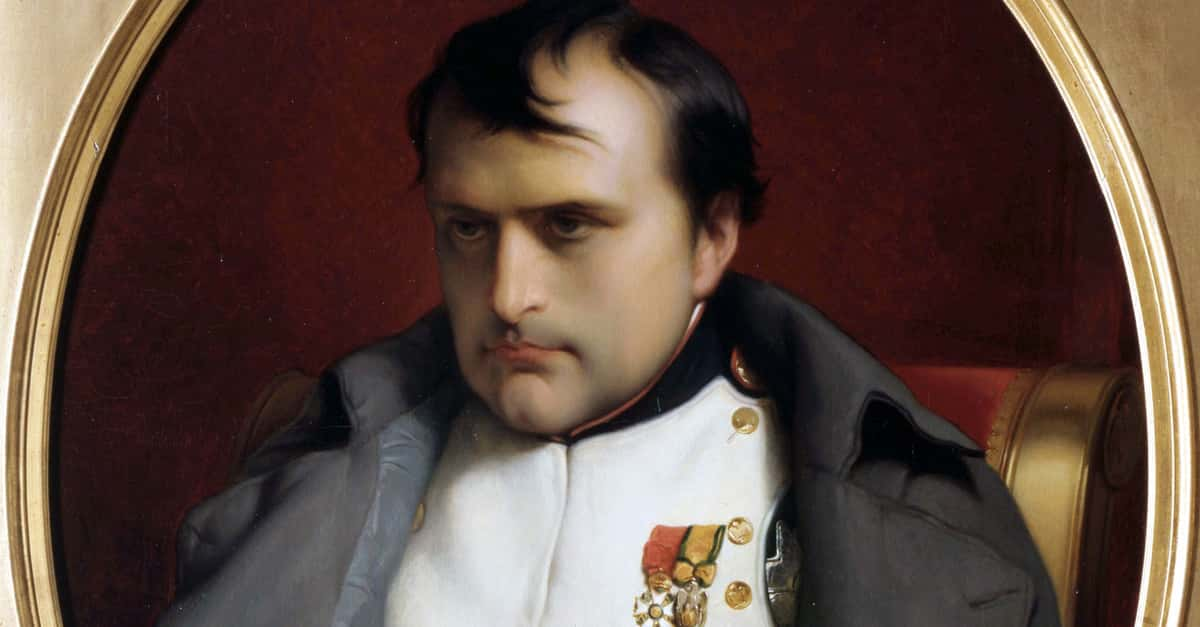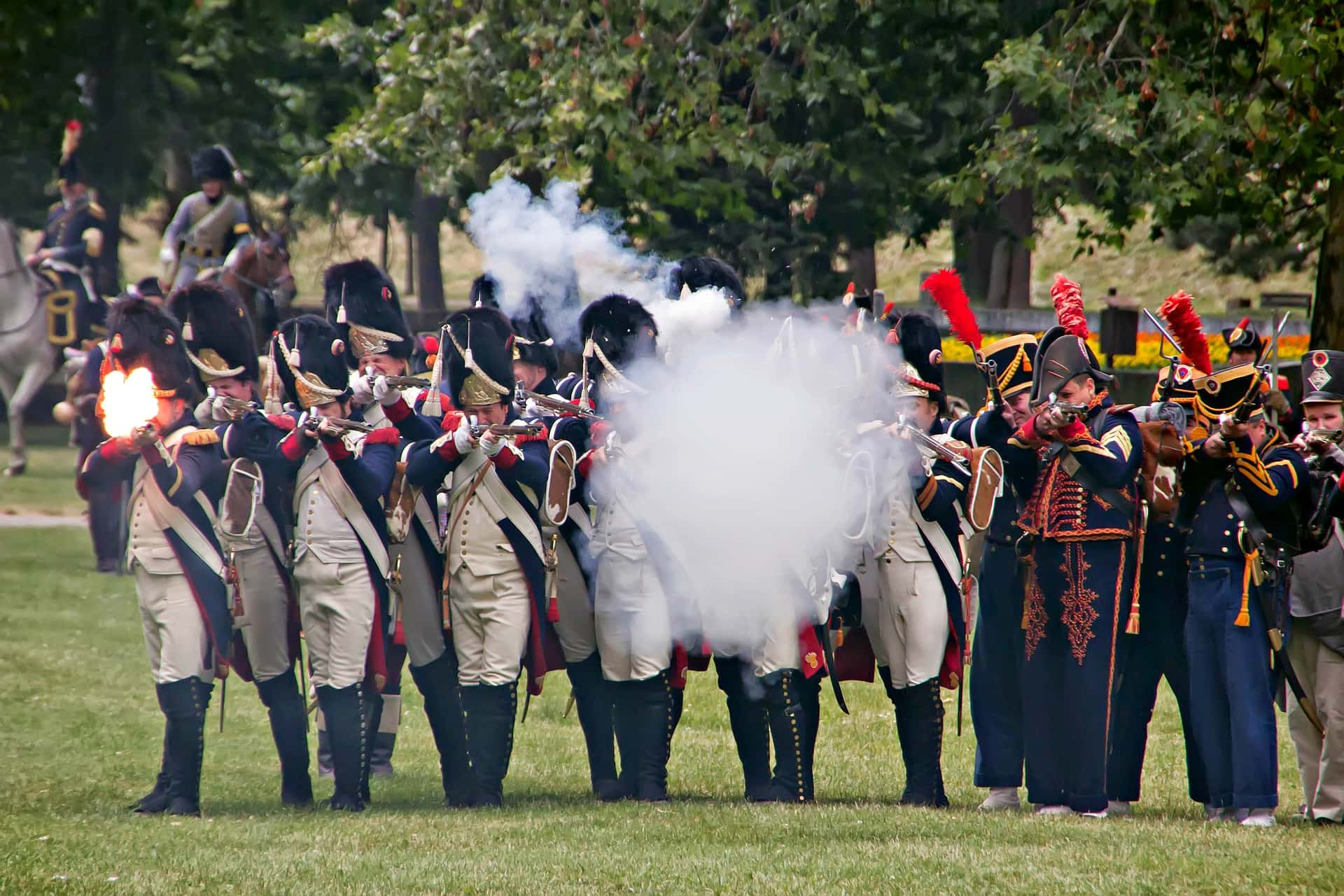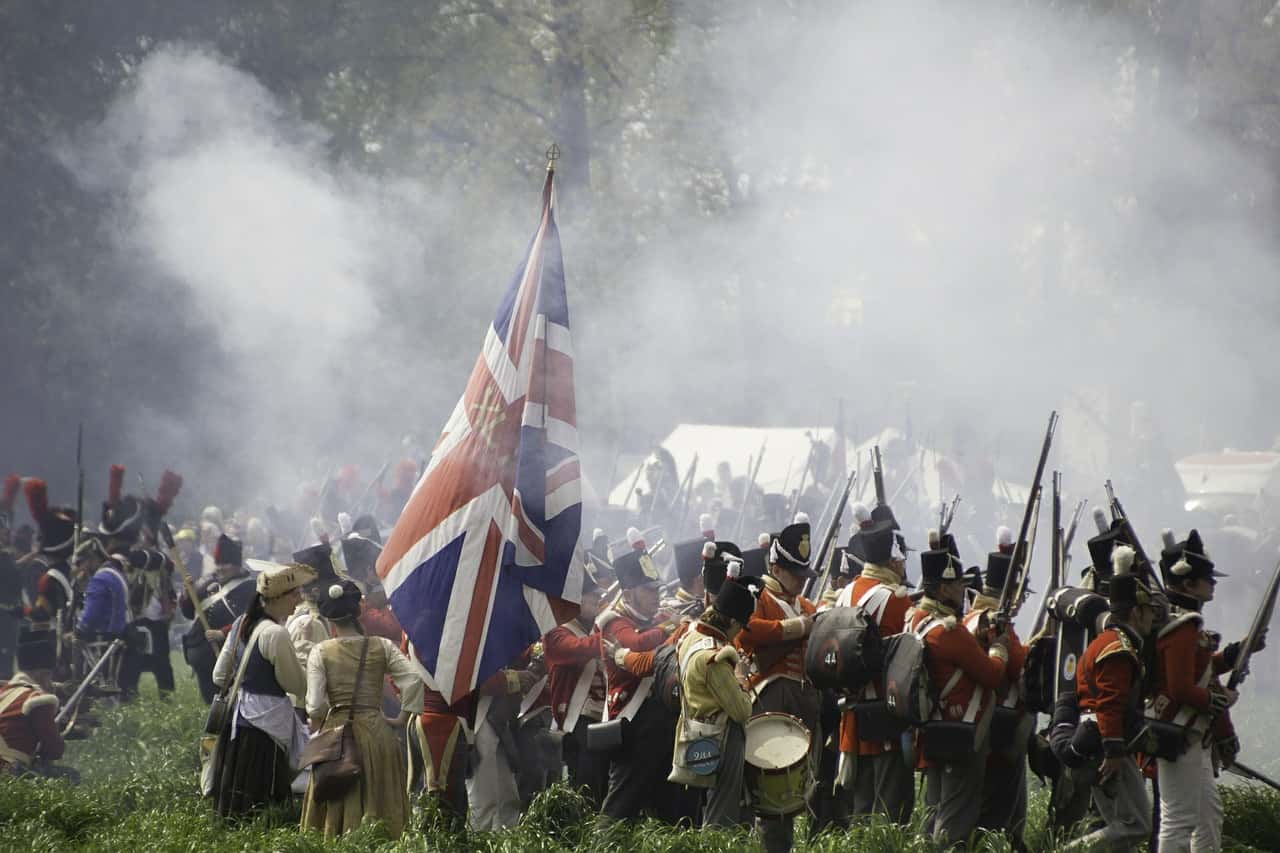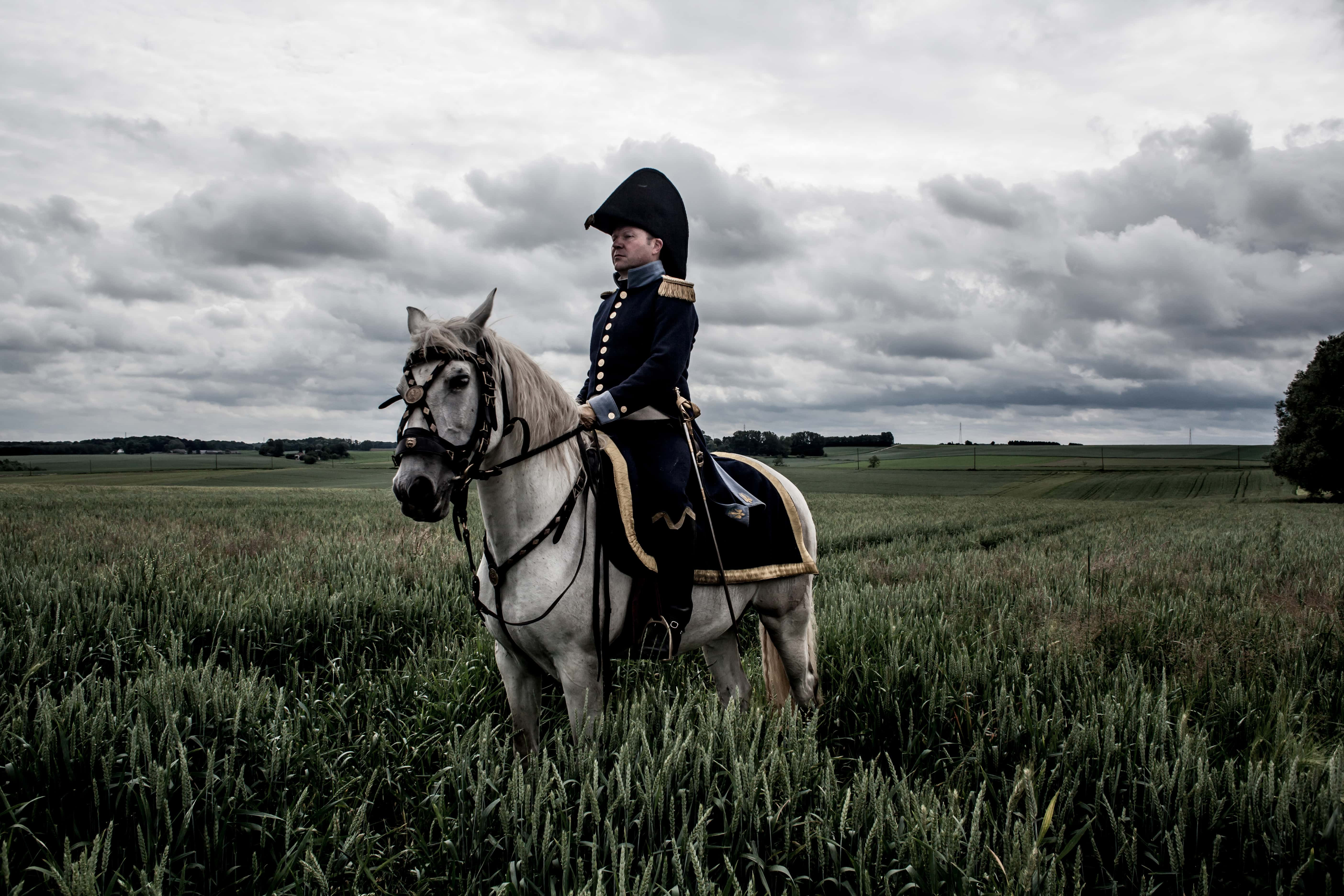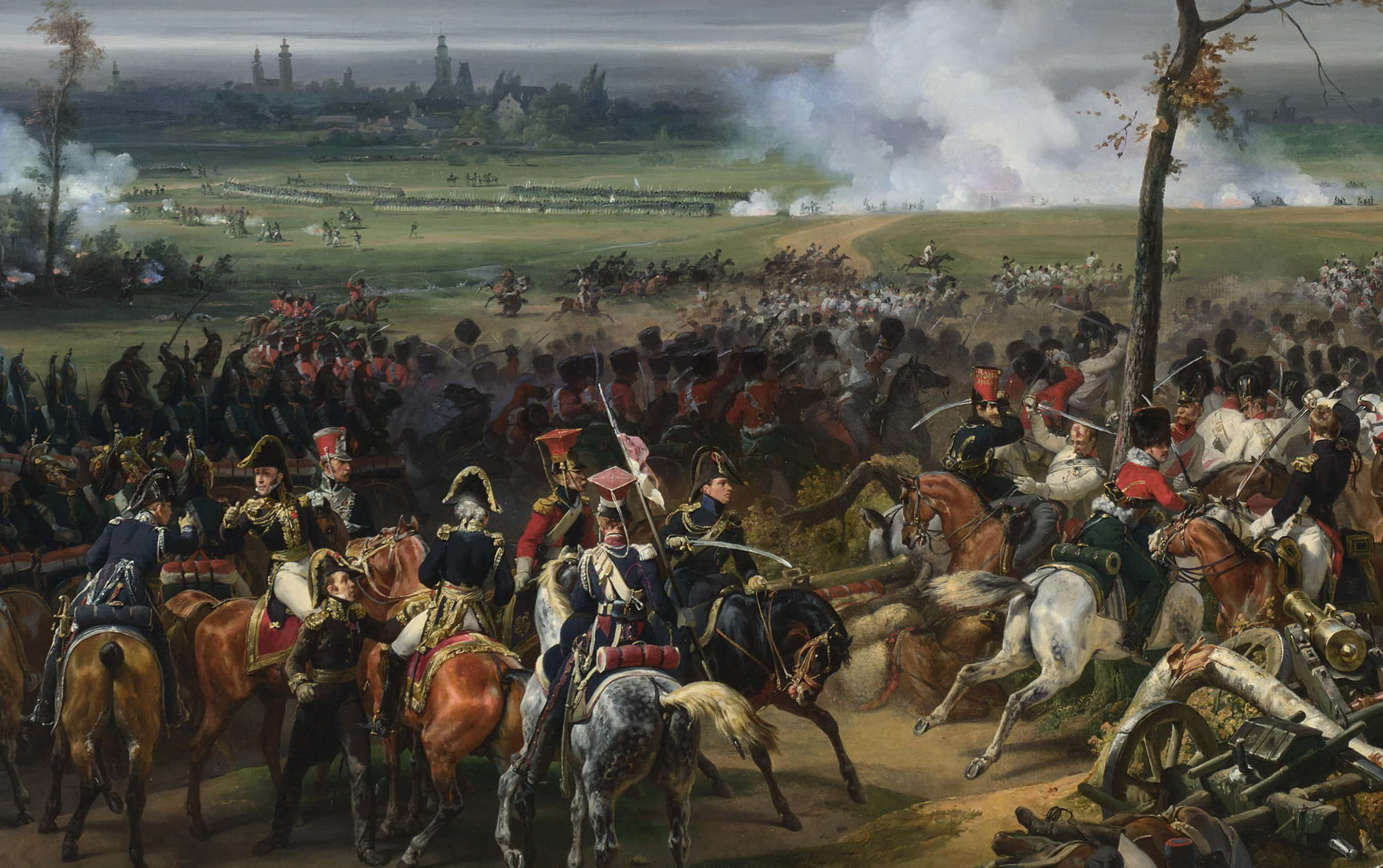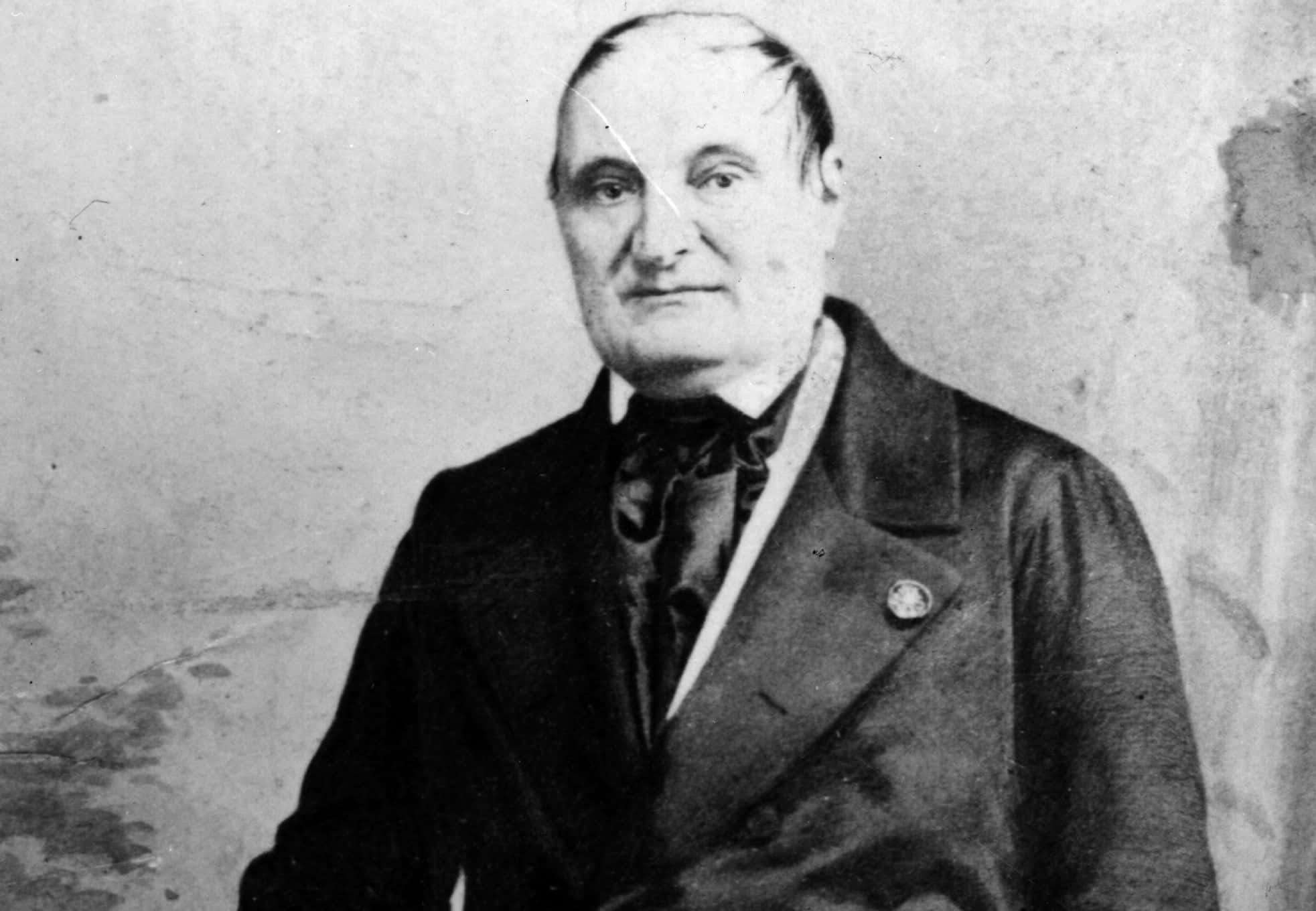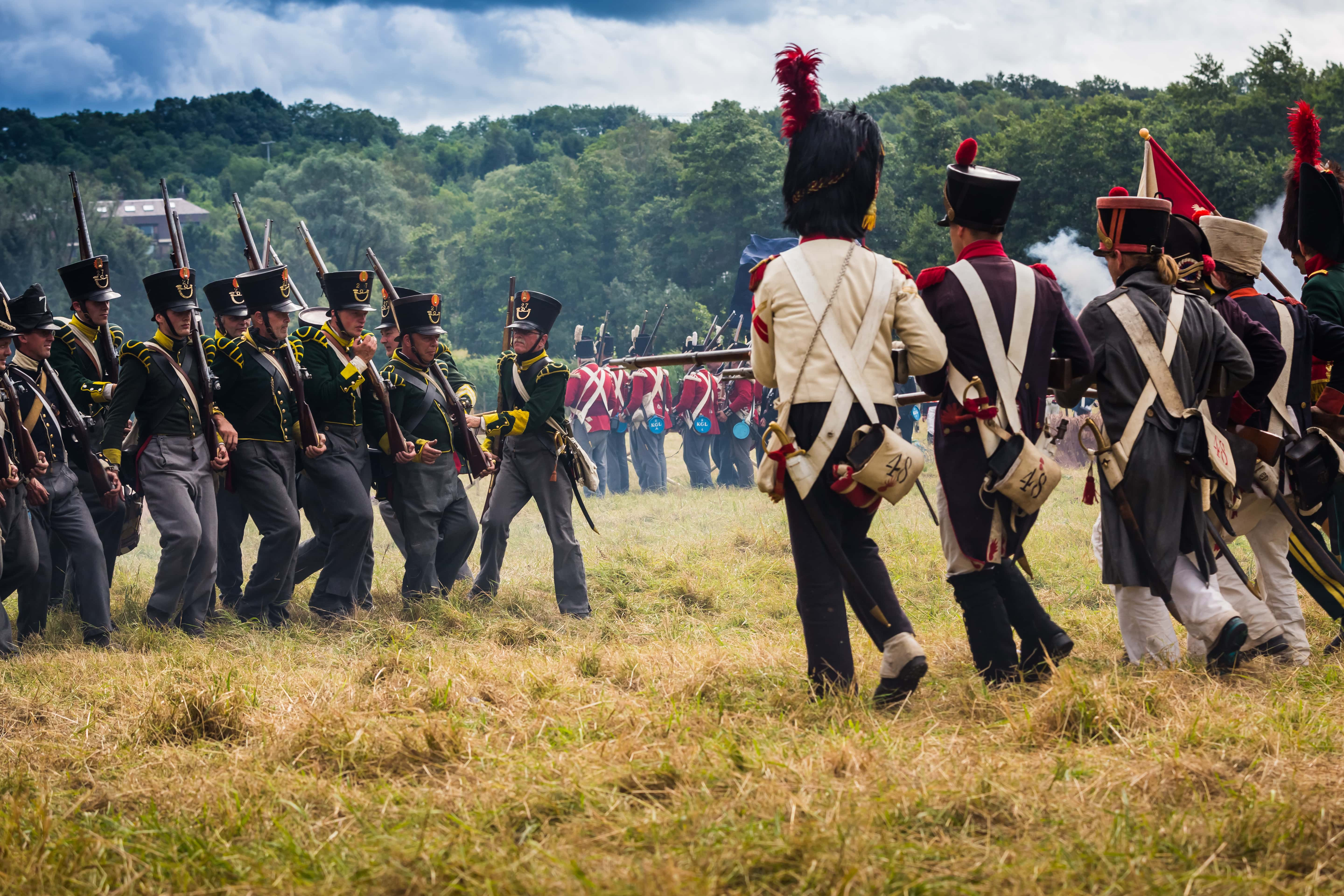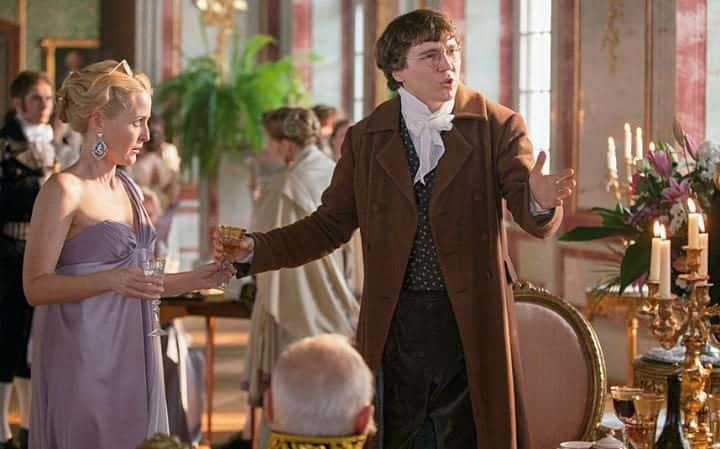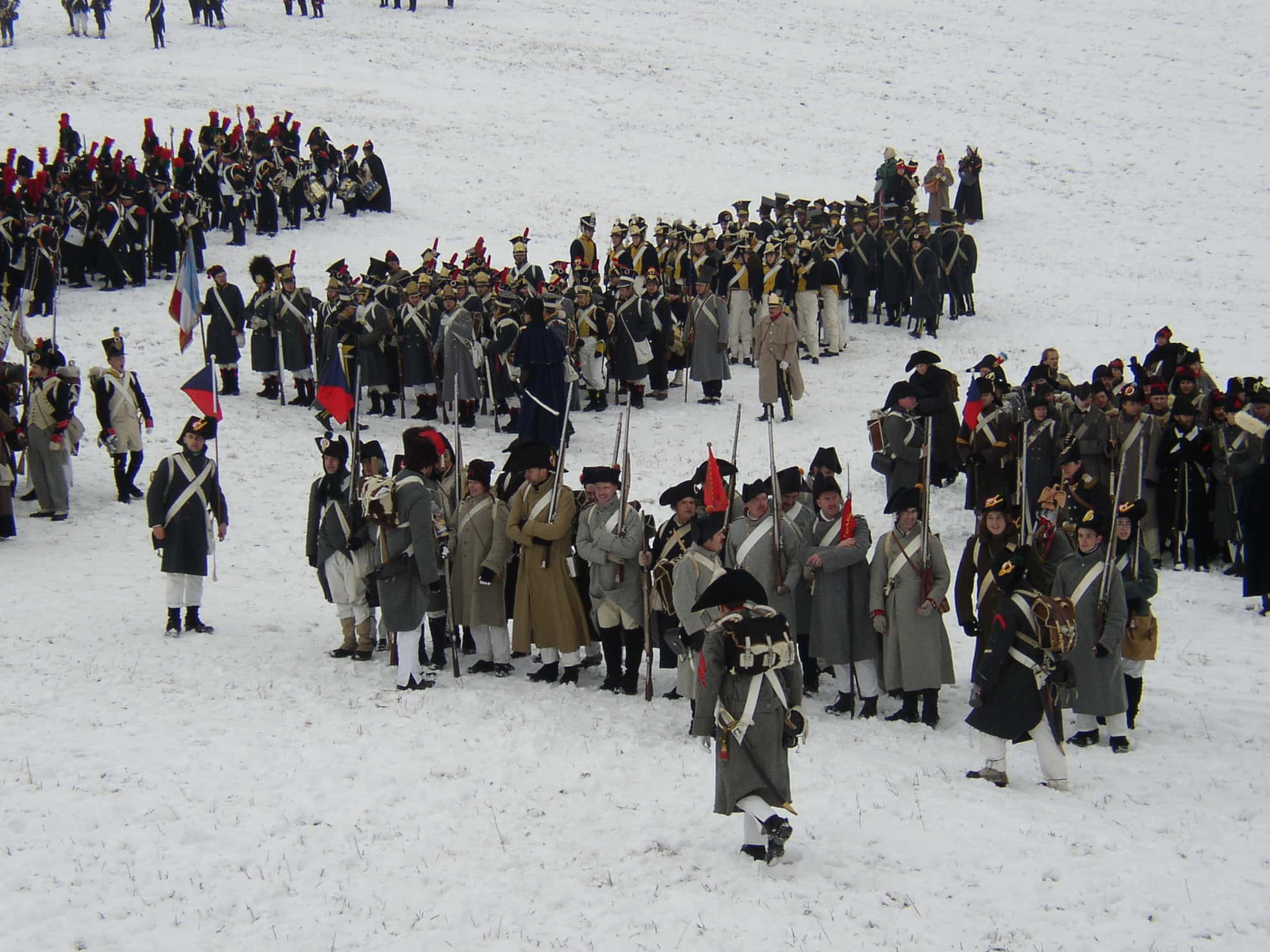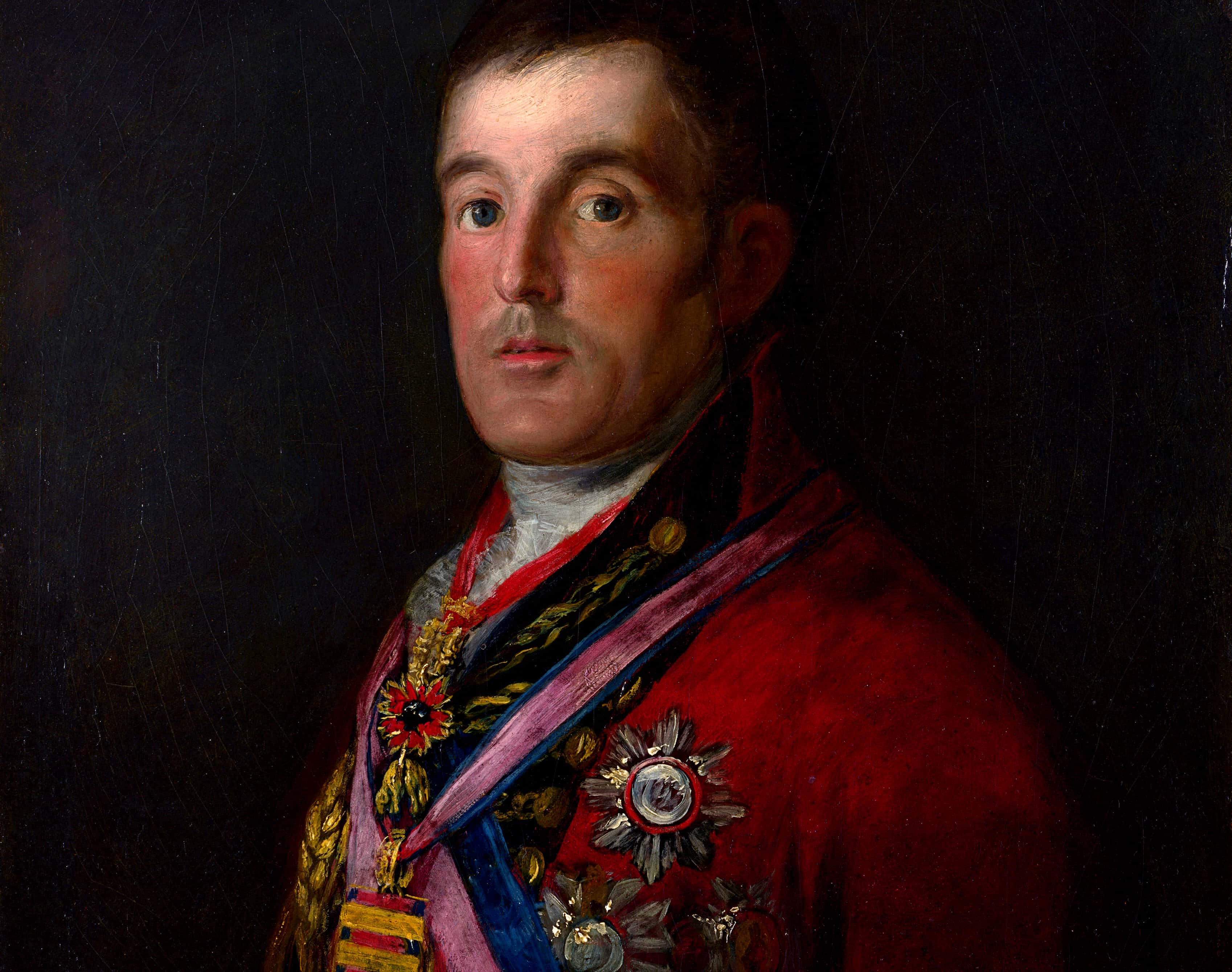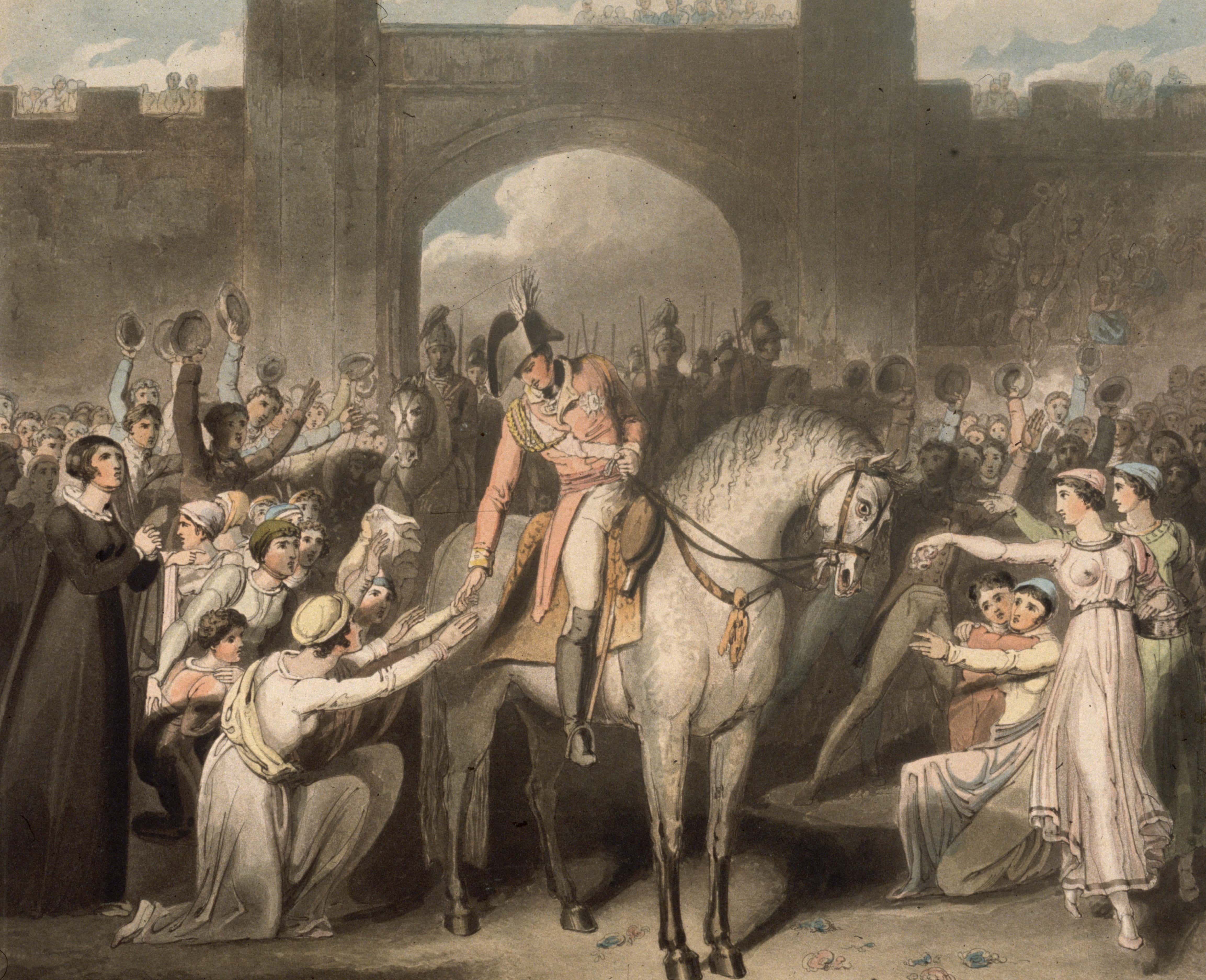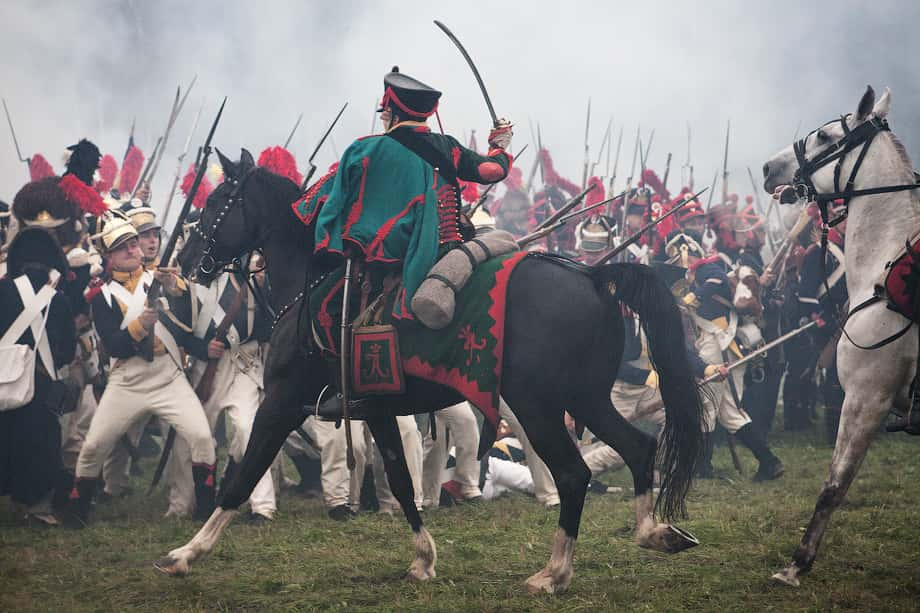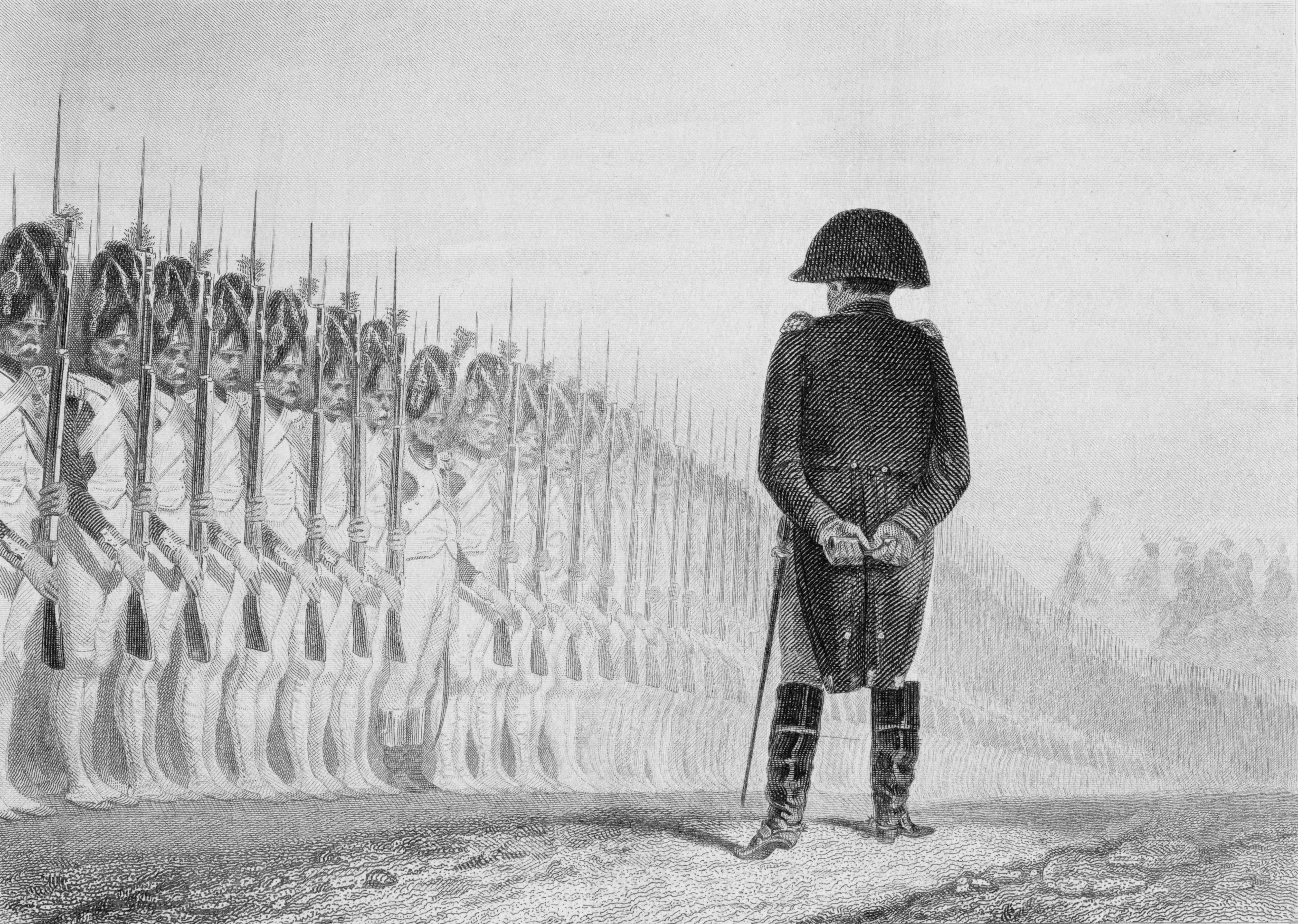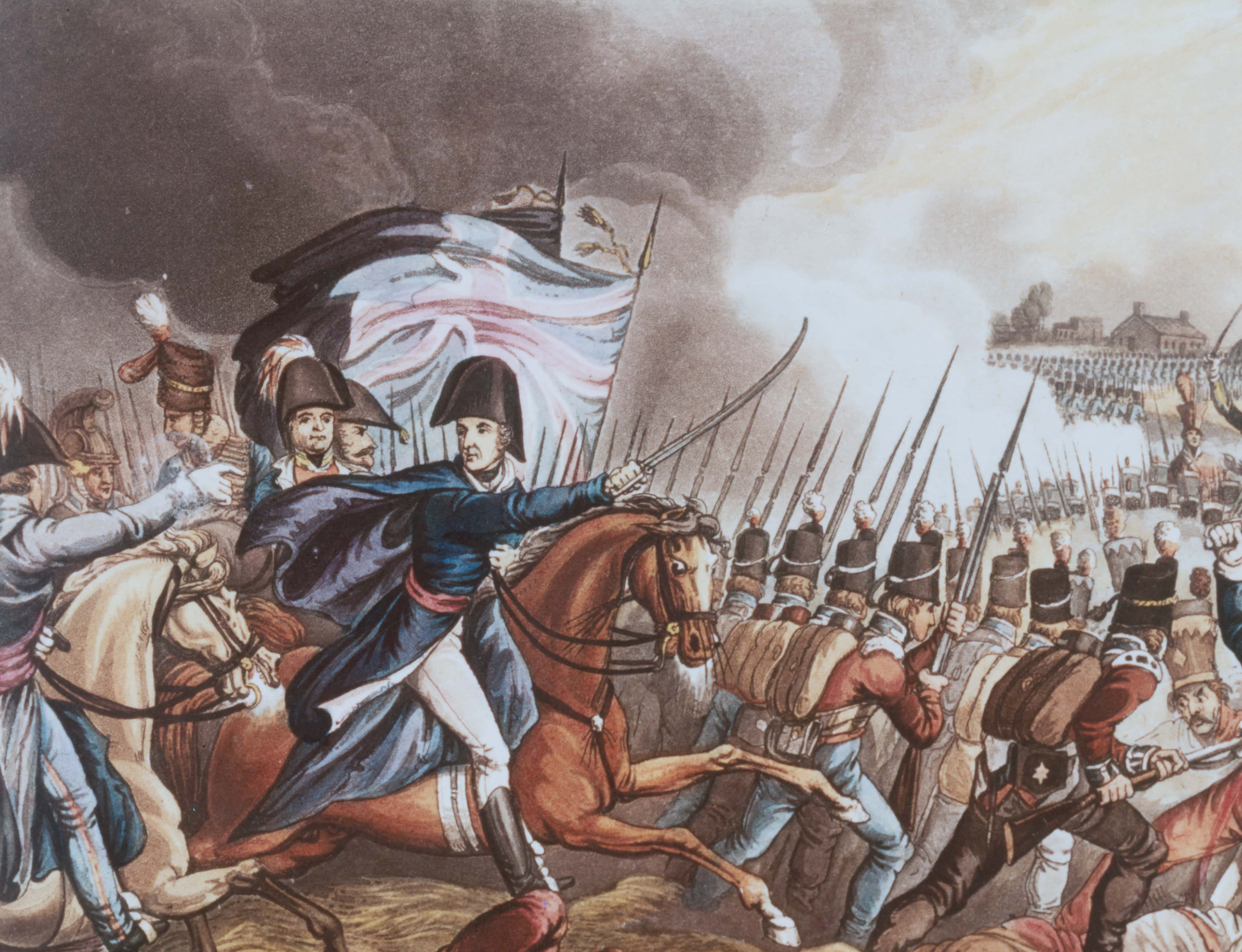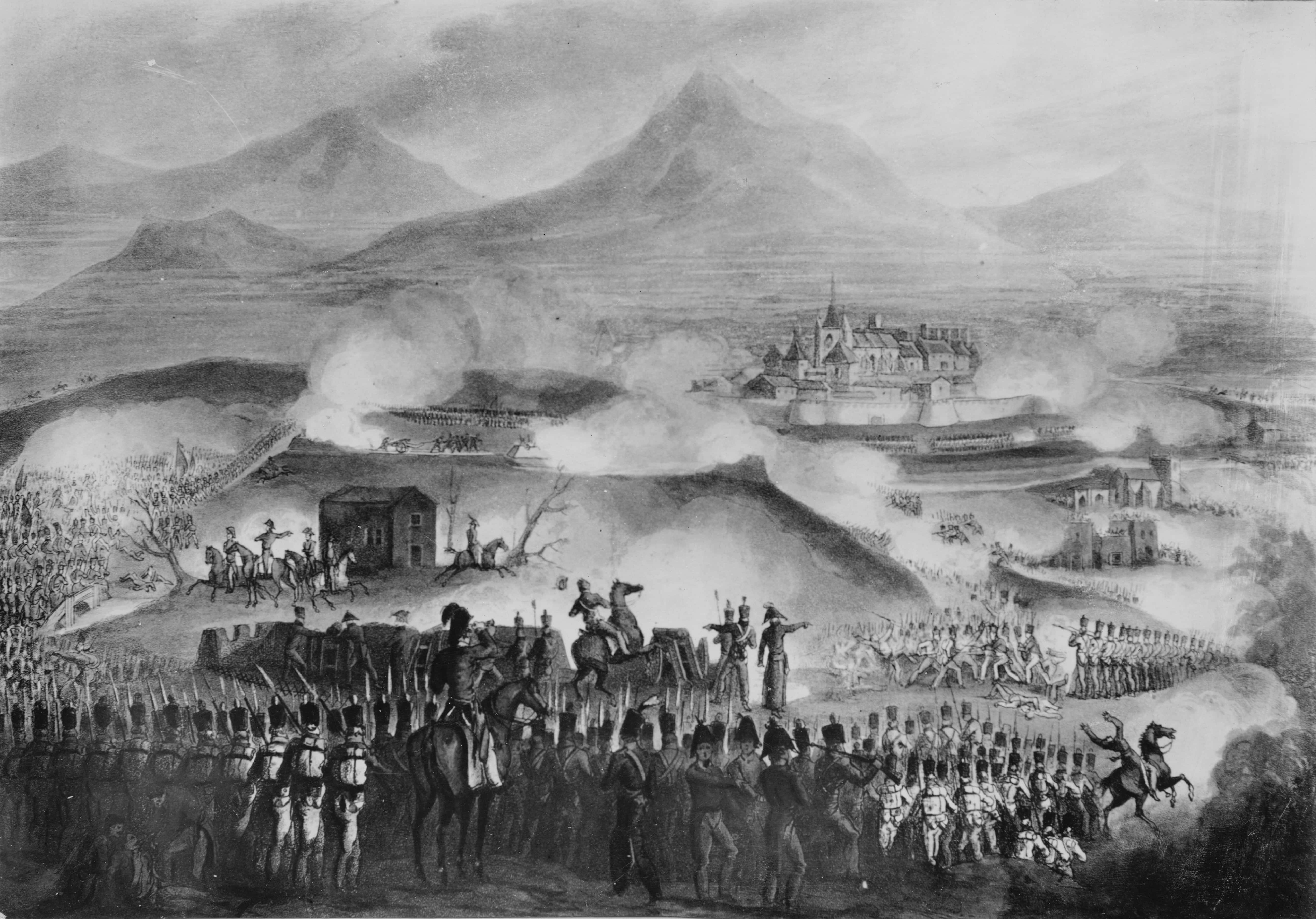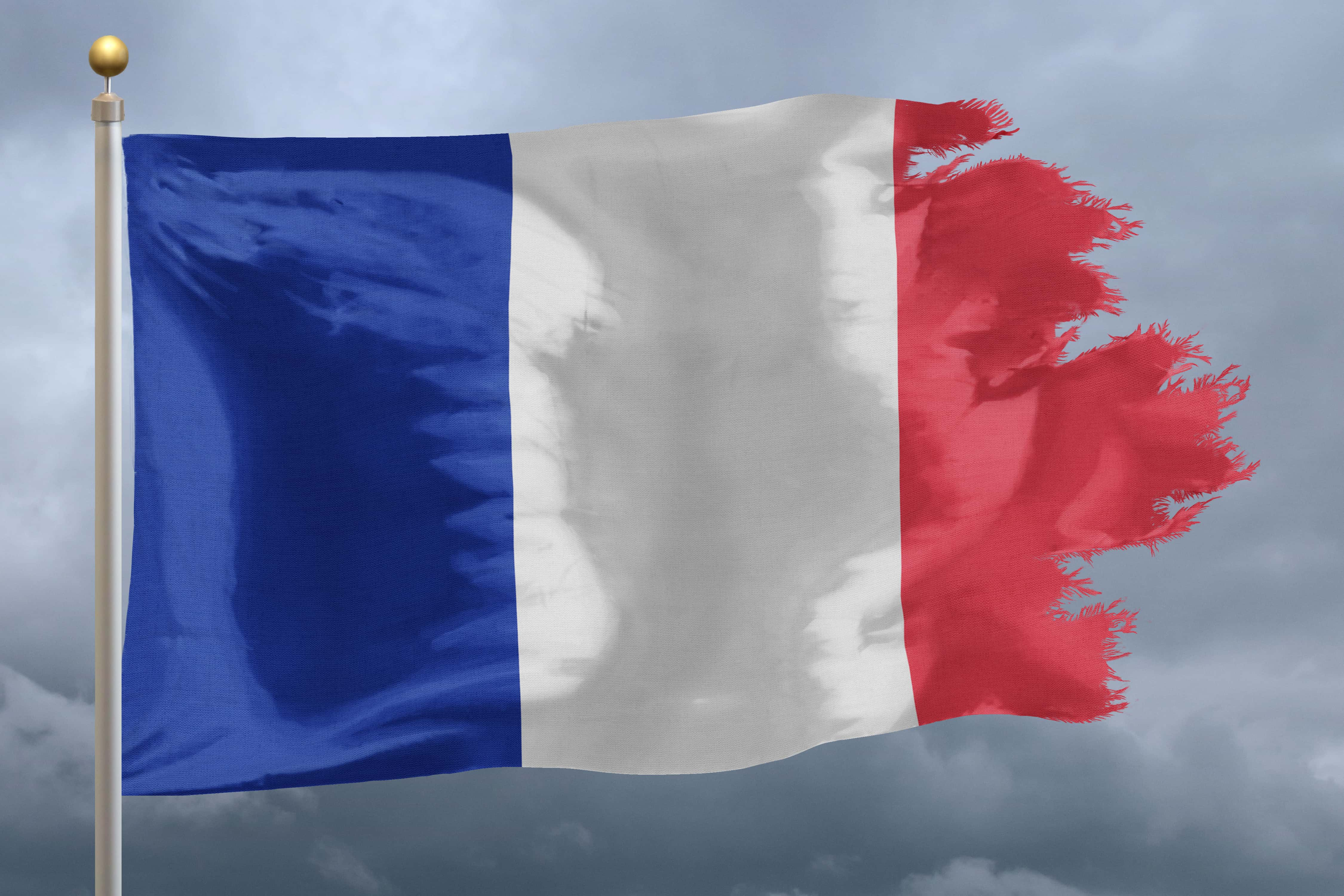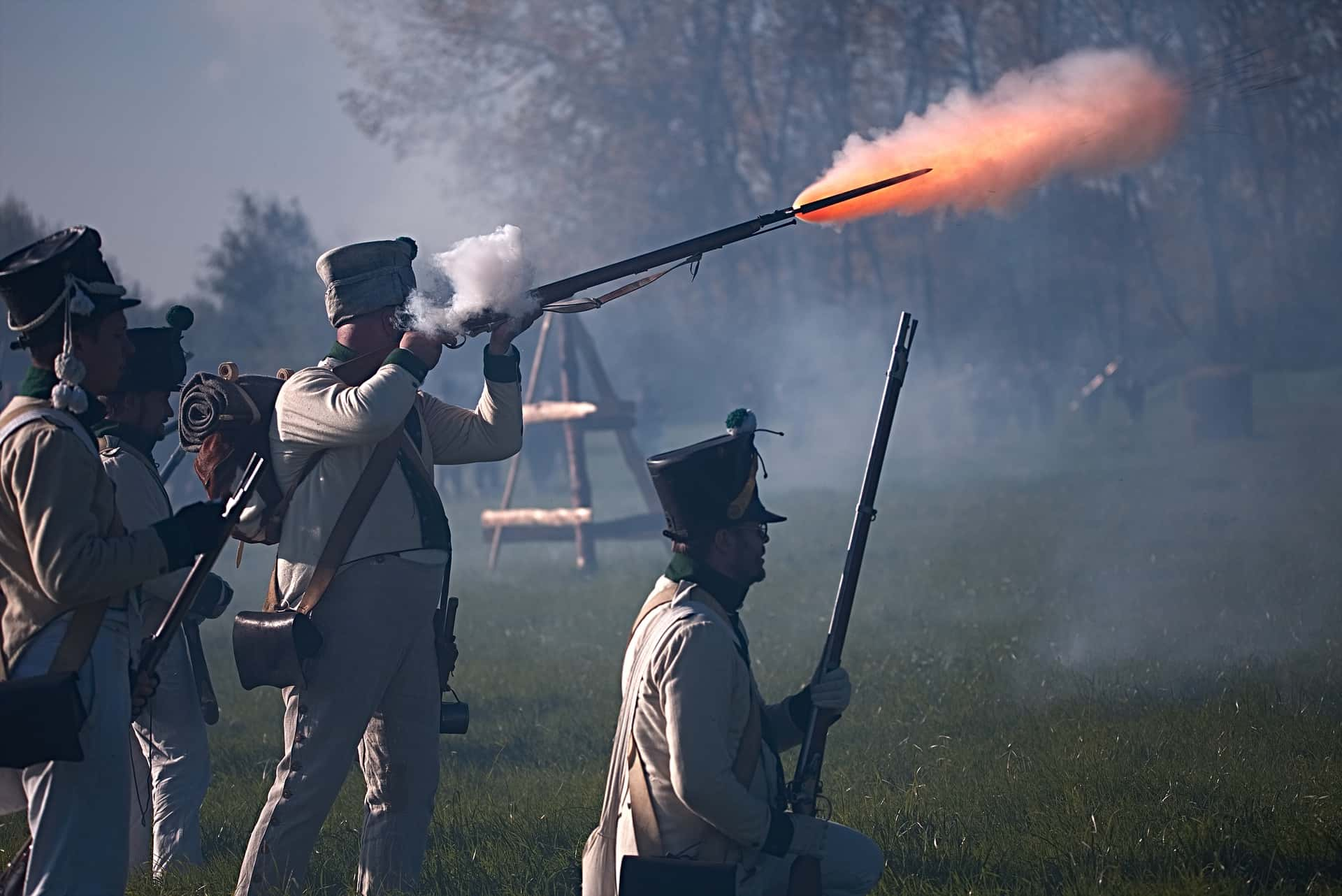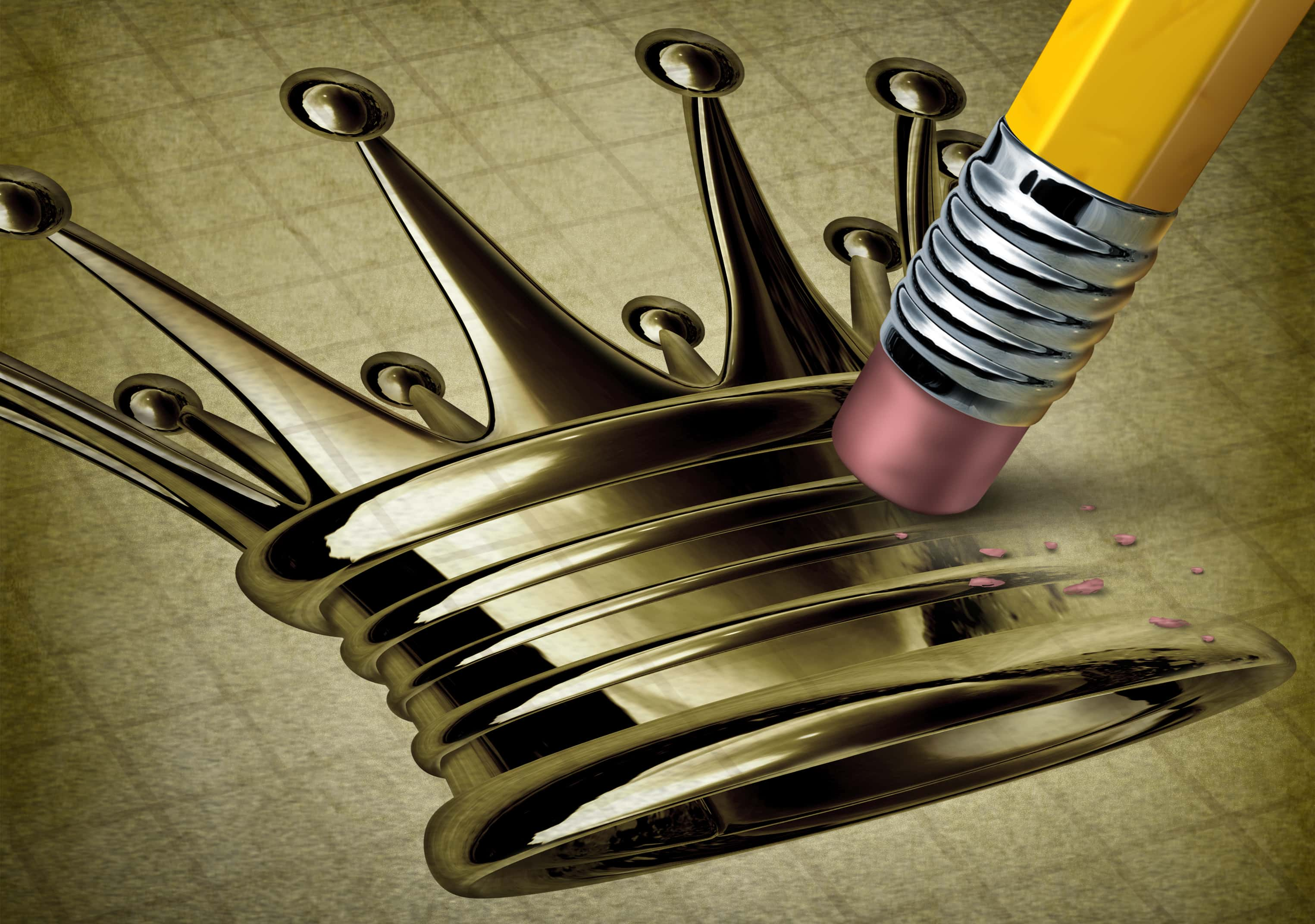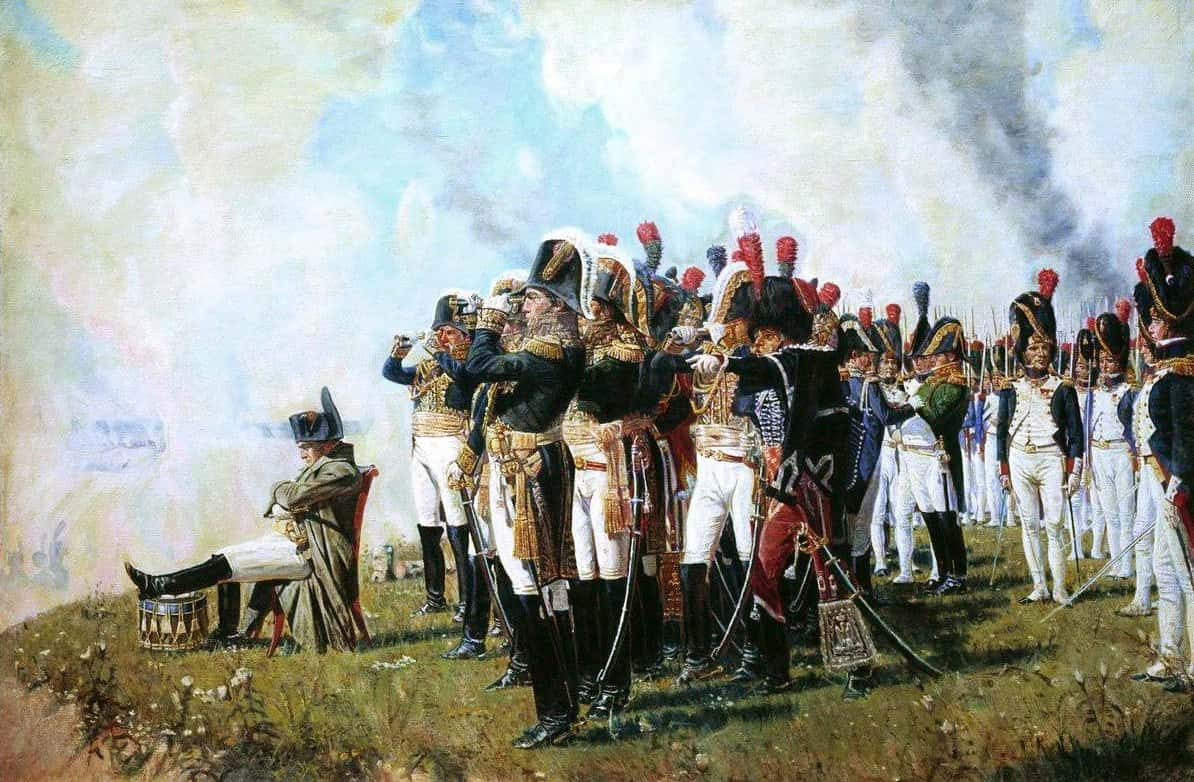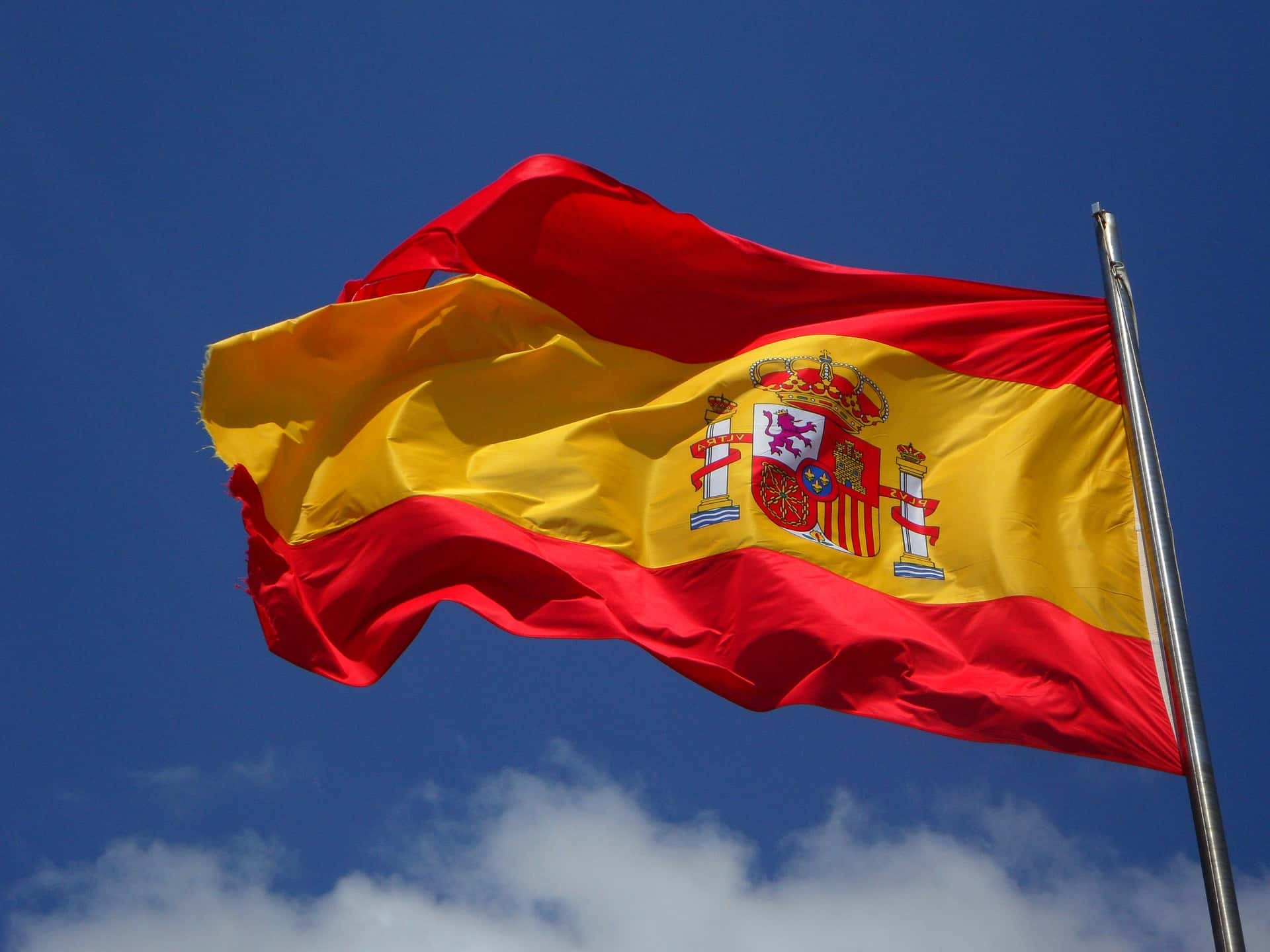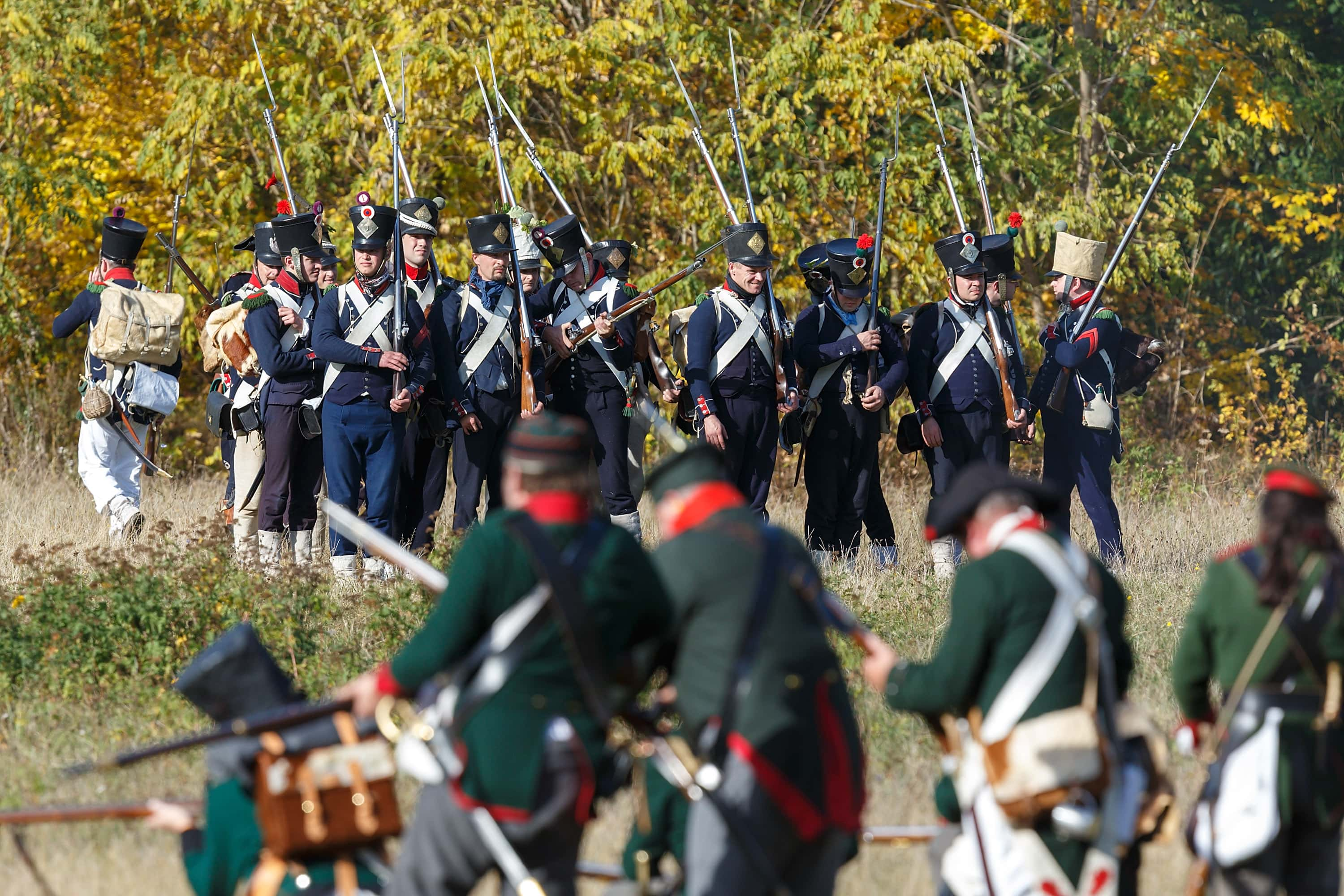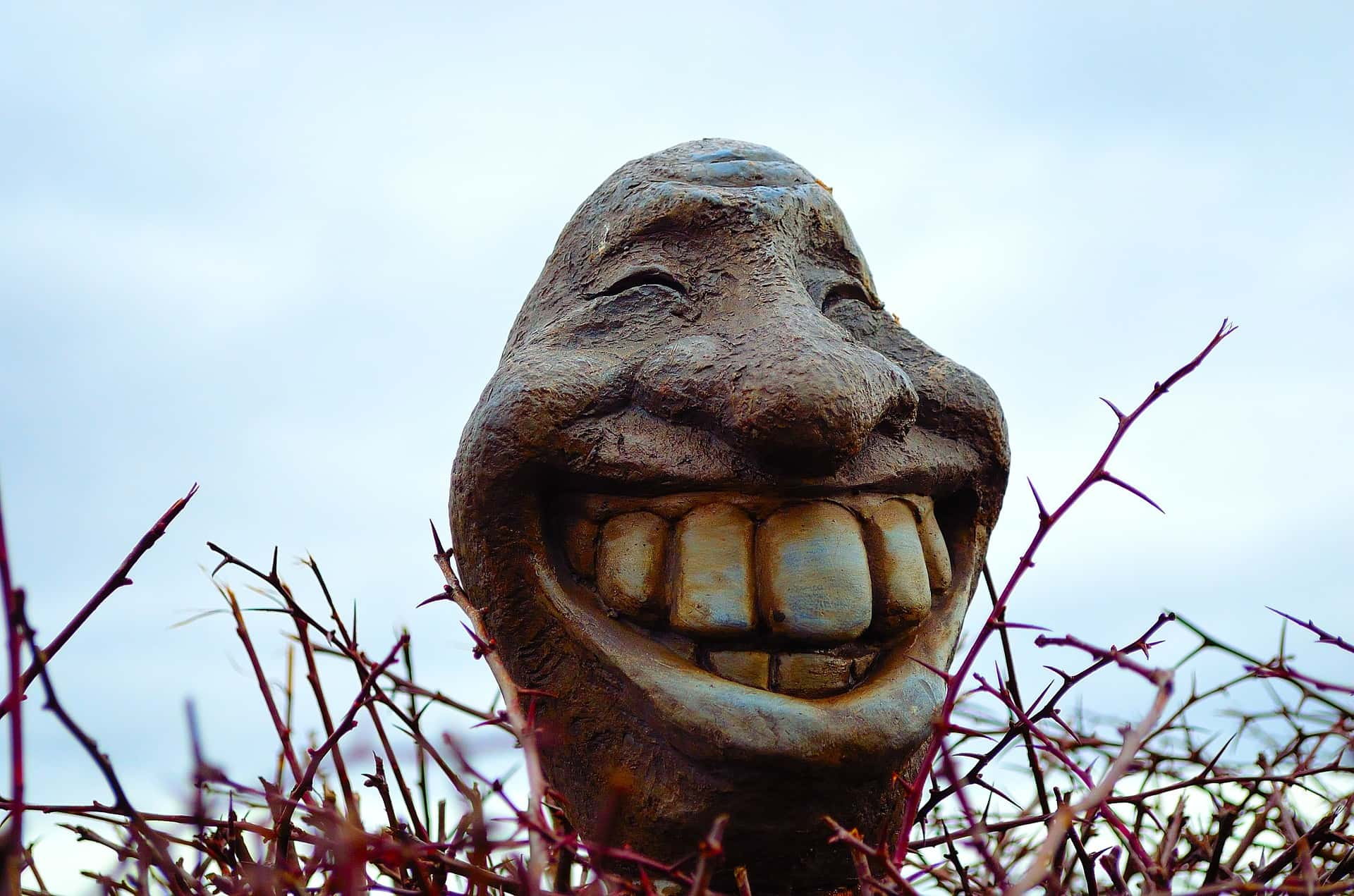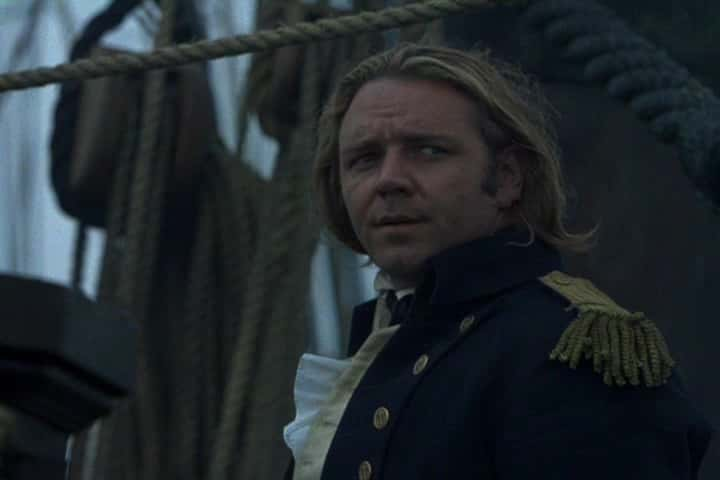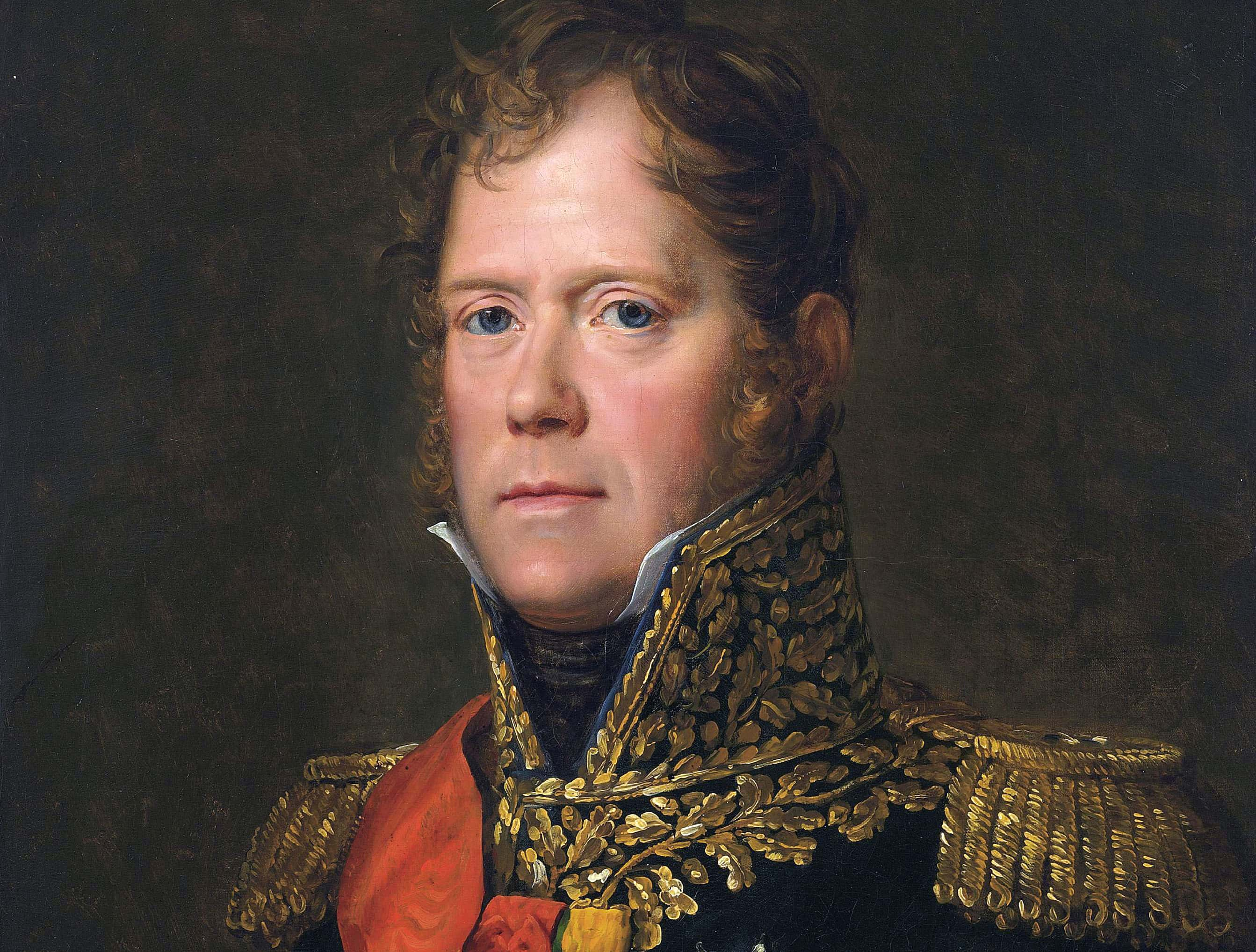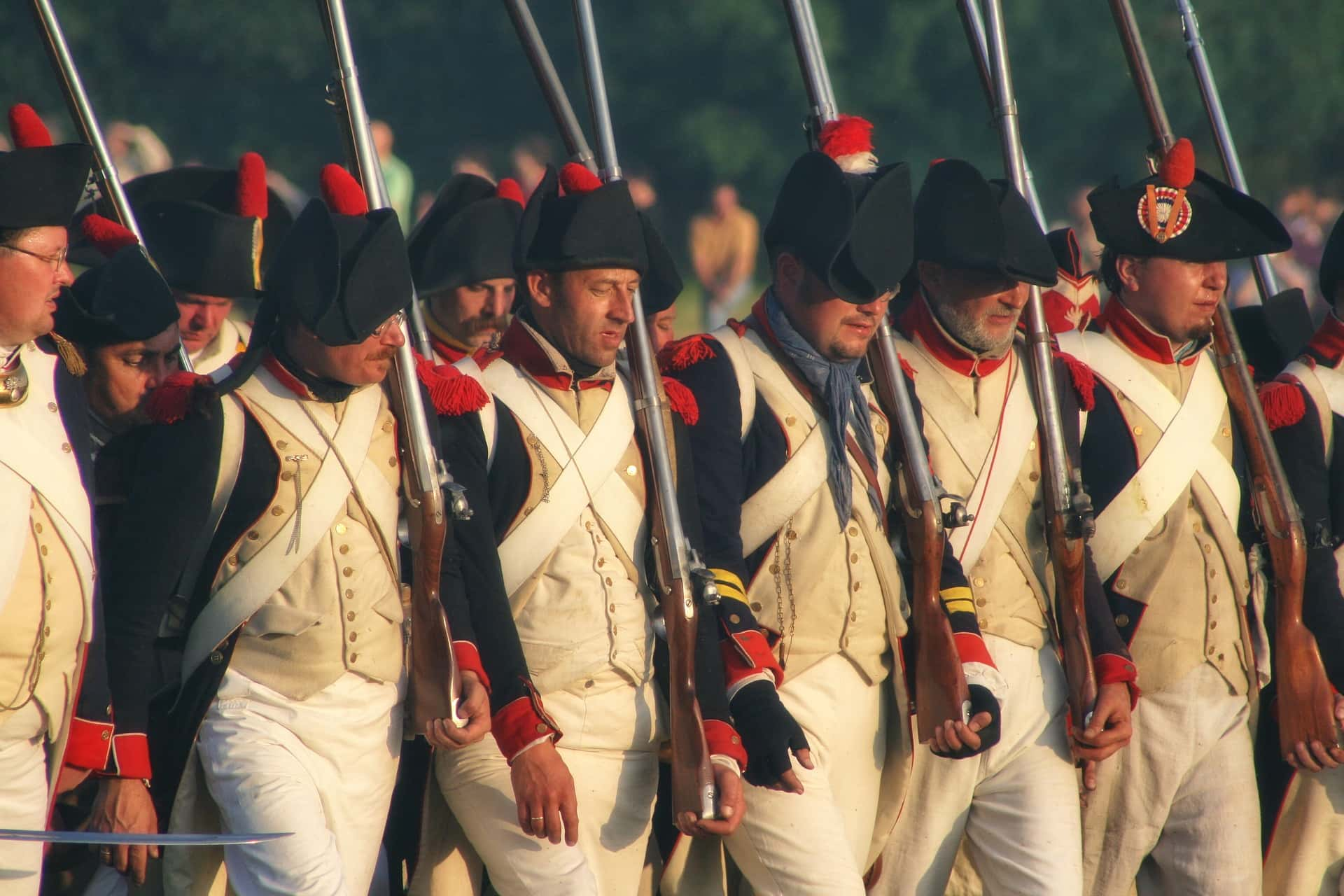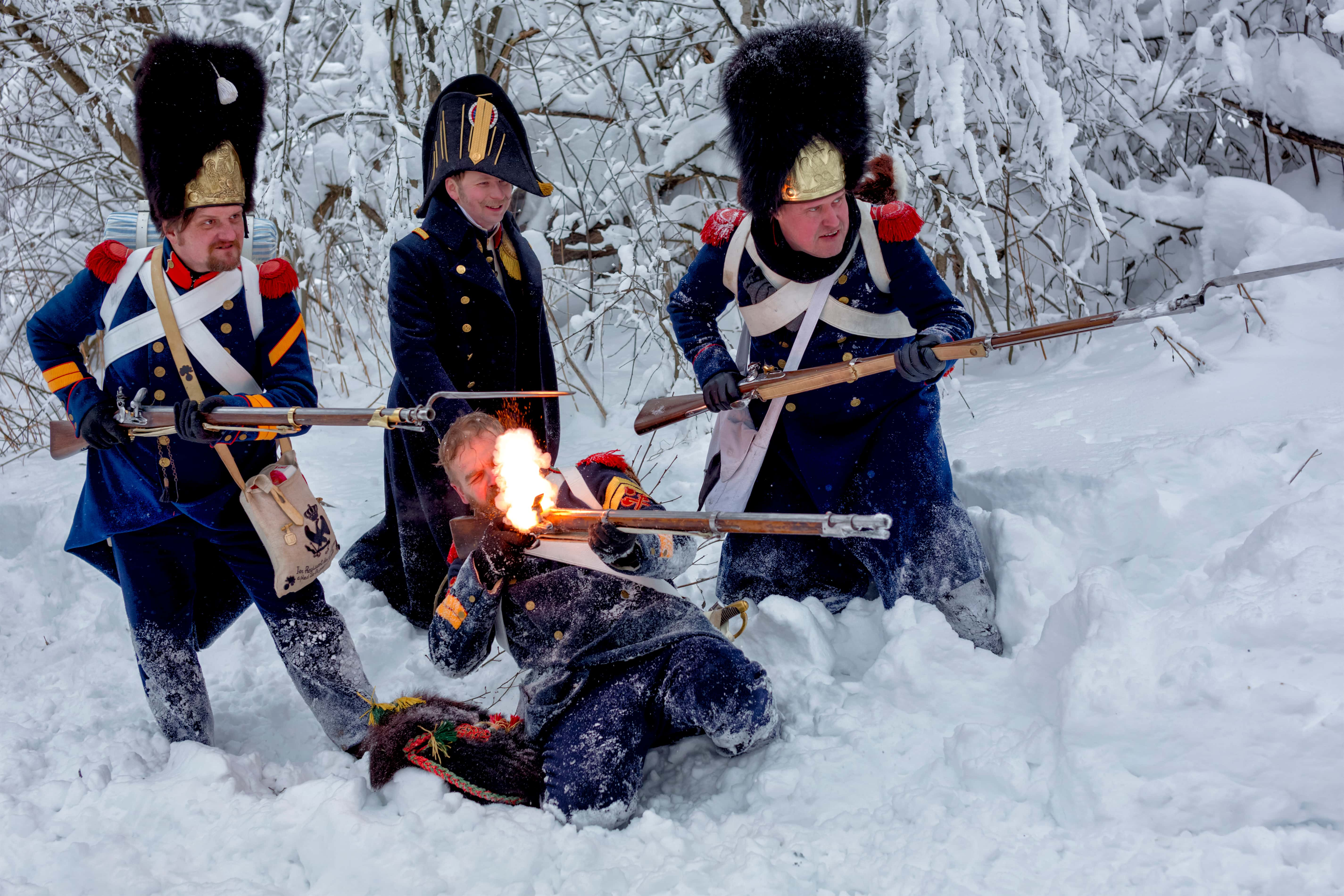Few wars in European history have ever been as influential, studied, and referenced in subsequent eras as the wars waged during the time of Napoleon Bonaparte. The rise and fall of such a dynamic man resulted in death and destruction on a level which wouldn’t be seen again for over a century after his defeat. All of it led to him being viewed as a hero, a tyrant, and everything in between. But despite history’s attempts to simplify the story of these wars, the truth is complex and endlessly fascinating. We here at Factinate wouldn’t dream of trying to give you the entire story, but we did find some of the most interesting aspects of the Napoleonic Wars, and we present them to you now!
Facts About The Napoleonic Wars
1. High Body Count
The Napoleonic Wars were an especially brutal series of conflicts, particularly when it came to casualties. While there’s no definite number on how many soldiers and civilians were killed during that time period, it’s been determined that between three and five million people lost their lives over a span of just under 12.5 years.
2. The Numbers Game
At the time of the Napoleonic Wars, Britain had a population of 16 million, France had a population of 30 million, and Russia’s was around 40 million. Of those populations, 900,000 Russians fought during the wars, as did 750,000 British and three million French. Beyond that, around one million Austrians participated in battle during the wars, as well as 320,000 Prussians.
3. What Happened to One and Two?!
As you can imagine, the French Revolution had terrified other European nations, and the rise of Napoleon led to several of those nations teaming up to bring him down. The Napoleonic Wars are usually split up into five sub-categories based on the coalitions formed to oppose France. Confusingly, they are referred to as the Third Coalition, the Fourth, the Fifth, the Sixth, and Seventh.
4. The Fun Starts at Eighteen
The War of the Third Coalition, and thus the Napoleonic Wars, began on May 18, 1803. Britain declared war on France that day, ending the Treaty of Amiens which had been keeping the peace between those nations. Meanwhile, the end of the Napoleonic Wars is often given as November 20, 1815.
5. I Sold my Soul, and my Jazz, and my Blues…
In case you’re inclined to wag a finger at the British for casting the first stone in the Napoleonic Wars, keep in mind that Napoleon himself was rather keen on conquest. He had sold the French territory of Louisiana to the United States for 68 million francs and was planning on using that money to finance an invasion of Britain. And frankly, you don’t just sell New Orleans unless you’re seriously in need of funds!
6. Which One was Greater?
Some of you might remember that the First World War was sometimes referred to as “the Great War” by writers and historians. However, this was a confusing title for those at the time, because before World War One, the Napoleonic Wars had been referred to as “the Great War” by the British. This overlap was part of the reason why the term “First World War” was coined.
7. Nepotist Bonaparte
During Napoleon’s conquests, he would install loyal men on the thrones of conquered nations. These client rulers often comprised of Napoleon’s siblings. Joseph Bonaparte was made the King of Spain and Jerome Bonaparte became the King of Westphalia. Napoleon’s sister Caroline and her husband were given the Kingdom of Naples, while he awarded the Principality of Lucca and Piombino to his sister Elisa and her husband.
8. France Vs. the World?
We’ve already mentioned that several coalitions were formed against France during the Napoleonic Wars, and that makes it even harder to explain which nations fought on which side. Spain was initially an ally of France before France invaded them. When Napoleon defeated certain nations, they would reluctantly join his side until they could break away from French control again. Meanwhile, nations such as Belgium fought on both sides of the conflict simultaneously. Belgians were on both sides of the Battle of Waterloo, for example.
9. Let’s Go Tropical!
One of the many nations invaded by French armies during this time period was Portugal. Because of the occupation, the Portuguese moved their capital city from Lisbon to Rio de Janeiro in Brazil (which was still a Portuguese colony back then). Rio remained Portugal’s official capital city for thirteen years.

History's most fascinating stories and darkest secrets, delivered to your inbox daily.
10. Hey! That was Our War!
The Napoleonic Wars weren’t just contained in Europe. Many historians in Europe consider the War of 1812 to be a subsidiary war in response to the Napoleonic Wars, since it was carried out when British ships interfered with American shipping to Europe. Canadian and American historians, of course, prefer to think of the War of 1812 as their own war.
11. Inspiring Classic Literature
Two of the most famous Russian authors of all time wrote novels either set during the Napoleonic Wars, or feature characters who personally experienced that time period. Leo Tolstoy’s War and Peace, often called his masterpiece, takes place during Napoleon’s invasion of Russia. Meanwhile, Fyodor Dostoyevsky’s novel The Idiot features a character who was active during that same era.
12. The High-Water Mark
Napoleon’s greatest military accomplishment is widely considered to be the Battle of Austerlitz. On the 2nd of December 1805, Napoleon faced a combined army led by Russian Tsar Alexander I and Holy Roman Emperor Francis II. This has led Austerlitz to be referred to as “The Battle of the Three Emperors.” Unfortunately for Russia and the Holy Roman Empire, their combined strength wasn’t enough to thwart Napoleon. The allies lost 36,000 soldiers to inflict just 9,000 French casualties. The battle effectively ended the Third Coalition, and nearly all of Western Europe came under Napoleon’s control.
13. Make Lemonade
Despite the incredible triumph that the Battle of Austerlitz was for Napoleon, it was actually the result of a major setback earlier that same year. Napoleon had been set to invade Britain, using a combined French and Spanish fleet. Before that could be done, however, Admiral Horatio Nelson led ships of the Royal Navy against that fleet at the Battle of Trafalgar on the 21st of October 1805.
14. Following the Mediterranean
The Iberian peninsula was the most active military front of the Napoleonic Wars. After French forces invaded and occupied Portugal and Spain, both those nations’ military and civilian forces fought many battles and skirmishes in defense of their homes. Their efforts were helped by a British army led by Arthur Wellesley, who was ennobled as Viscount Wellington in honor of his victory at the Battle of Talavera. In total, more than thirty sieges and sixty major battles were fought over six years of fighting which took Wellington’s forces from Portugal, through Spain, and into the south of France.
15. Colorful Side Characters
The Duke of Wellington wasn’t the only British officer who made his reputation with the Peninsular War. Rowland Hill was a British general who was highly popular with his troops for his kind demeanor and genuine concern for his troops. In fact, he was nicknamed “Daddy Hill” by those same troops under his command. By contrast, there was the controversial and vain Thomas Picton, a Welsh general whom Wellington called "a rough foul-mouthed devil as ever lived," yet who proved his brilliant military ability countless times before meeting his end at the Battle of Waterloo. Most famous, however, was the angry and harsh disciplinarian Robert “Black Bob” Craufurd. Craufurd commanded the elite division of the British army and was instrumental in many of the British army’s greatest victories in Spain. Sadly, Craufurd would be killed at the 1812 Siege of Ciudad Rodrigo.
16. British Bribes
While historians make a big deal about Napoleon’s military strategies, as well as the battle strategies of his enemies, it’s important to note that a driving force of the wars was money. Britain, in particular, used currency to fight the French. Huge sums of money were paid out to European nations so that they could finance armies against Napoleon. These sums of money were often known as the “Golden Cavalry of St. George.” In one famous example, the British agreed to pay Russia 1.5 million pounds for every 100,000 troops who were killed in the struggle against the French.
17. Take What You Can
The Napoleonic Wars were characterized by the exponential increase in army size compared to previous wars in Europe. In order to support armies which regularly numbered in the tens, or even hundreds, of thousands, the French adopted a live-off-the-land policy rather than maintain huge supply lines. This policy of plundering local populaces in lands which they invaded naturally made them a lot of enemies. Later, when the French were overrun and being invaded by the Seventh Coalition, the Prussian army gave them a taste of their own medicine by plundering the French countryside.
18. It Pays to Have Ethics
One person who didn’t go in for the “live-off-the-land” policy of armies in those days was the Duke of Wellington. When his army invaded France in 1814, and again in 1815 after the Battle of Waterloo, Wellington made sure that any supplies taken from the French populace were properly paid for. We should point out that this wasn’t quite out of the goodness of his heart. After years of working alongside the Spanish guerrillas, Wellington had seen firsthand just how much trouble an angry civilian population can cause for an invading force. As a result, the French never rose up against Wellington the way that others rose up against Napoleon’s forces.
19. Death and Destruction
One of the bloodiest days of the Napoleonic Wars took place during Napoleon’s infamous invasion of Russia (more on that later). The Battle of Borodino was fought by 250,000 soldiers in all, with more than 70,000 of them becoming casualties that day.
20. They Also Included 10,000 Uruk-Hai
In 1812, Napoleon's power was at its peak, despite any success that the British were having in Portugal and Spain. It was that year when Napoleon assembled the Grande Armée, considered to be the largest army ever assembled in human history up to that point. The Grande Armée consisted mostly of Frenchmen, Poles, and Germans, along with several other nationalities who were allied to Napoleon at the time. The exact number has been lost to history, but it may have been more than one million men strong at one point!
21. Multi-Ethnic Victory
The Battle of Waterloo is often lauded by the British as a great triumph, particularly since it was Arthur Wellesley, the Duke of Wellington, who finally managed to defeat Napoleon. However, while Wellesley was certainly in charge of his own army in the battle, the percentage of British troops in said army was only about a third, and that includes the number of Irish troops (Wellington himself was born in Ireland). The rest of Wellington’s army was comprised of Germans, Dutch, and Belgian troops.
22. If Only They’d Had Twitter
In April 1814, the Duke of Wellington led an allied army of British, Spanish, German, and Portuguese soldiers against a French army outside of Toulouse. By the end of the battle, losses totaled around 3,000 French soldiers and 5,000 allied troops. The tragic irony of this battle, however, was the fact that Napoleon had already been driven back to Paris by northern European forces and forced to surrender. The Battle of Toulouse was, in the grand scheme of things, a thoroughly pointless battle.
23. A Thief Who Steals to Stop Another Thief
In 1807, Denmark was in possession of a considerable navy, which the French were interested in taking to replace the fleet which they’d lost at the Battle of Trafalgar in 1805. The British were convinced that Denmark would either give their fleet to Napoleon’s control, or else be forced to do so. Their answer was to insist that Denmark hand over their fleet to Britain for protection. Seeing through such self-serving behavior, the Danish government refused. The British would sail to Copenhagen and unleash a brutal bombardment on the city until the Danish surrendered their ships to the British.
24. New Bosses in Town
Before the Napoleonic Wars, France had held a leading position in Europe and also around the world. After the wars, however, a balance of power was established by those who had come together to finally defeat Napoleon once and for all. Nations’ borders were redrawn on the map of Europe to prevent one nation from becoming as powerful as France again. This led to the rise of Prussia as a strong military power, while Britain had virtually unchallenged naval and colonial superiority.
25. Thanks, Nappy!
One of France’s most consistent allies was Poland. Before 1807, the region we know now as Poland was partitioned between three empires that bordered it. Napoleon changed that when he set up the Duchy of Warsaw, making Poland an independent nation. This was opposed by Russia, which was part of the reason why Napoleon invaded Russia (more on that disaster later). The Poles, meanwhile, were so enthused by Napoleon’s support that they provided up to 200,000 men to fight for him. Nearly half of those men would go on to take part in Napoleon’s invasion of Russia (which we can only assume they’d grow to regret).
26. I Double Dare You!
Even after all the bloodshed of previous years, Napoleon still drew the loyalty of the French military when he returned from exile on the island of Elba. The most famous anecdote about his return involved Napoleon facing down royalist troops at Grenoble. The former Emperor stepped forward, tore his shirt open, and declared “If any of you will shoot his Emperor, here I am.” Rather than take him up on the offer, the troops joined his side and helped him take power once again.
27. Not Quite Done
The accepted story of Napoleon’s downfall is that after he returned from Elba to resume power in France, he embarked on a campaign which ended with the Battle of Waterloo, breaking Napoleon once and for all. However, the truth is that the war wasn’t over with Waterloo. Even while they were in retreat, the French fought several battles with the pursuing forces of the Seventh Coalition. Thousands more soldiers died before Napoleon abdicated, the allies marched on Paris, and the French royal family was restored to power.
28. Let’s Play!
PC Gamers will likely be familiar with the series of computer games known as Total War. These games cover various wars from all across history, and one edition was titled Napoleon: Total War. Predictably, the game follows the events of the Napoleonic Wars, where the players can either play as the French or one of their main rivals during said time period.
29. A New Way of Thinking
It was after the Napoleonic Wars that nationalism first emerged to prominence. The idea that people could be united through shared culture hadn’t really been a thing in the age of fiefdoms and absolute monarchy. Attempts to mash certain territories together as buffer states were undone within a few years due to nationalist uprisings. As a result, Norway seceded from Sweden, and Belgium defied attempts to be combined with the Netherlands.
30. My Band of Brothers
As brilliant as Napoleon was, he didn’t do it all alone. When he rose to power, he appointed eighteen men to the title of “Marshall of the Empire.” These men, with varying success, fought countless battles for their Emperor, whether as independent leaders or under Napoleon’s personal command. The number of Marshals would never go above twenty at any one time, but twenty-six men would carry that rank before Napoleon’s defeat.
31. Inspiring Events
Understandably, the Napoleonic Wars would frequently be referenced in classic French literature. Writer Victor Hugo would set part of Les Miserables during the Napoleonic Wars, as did writer Alexandre Dumas with his classic epic The Count of Monte Cristo.
 Wikimedia Commons, VillageTheatre
Wikimedia Commons, VillageTheatre
32. Viva the Revolution!
One of the real losers of the Napoleonic Wars was Spain. The naval and military losses which they suffered during the years of war led to their colonies in South America fight for independence. Thus, the nations of Chile, Venezuela, and Peru were formed, among others.
33. Field Marshal Blücher
What the Duke of Wellington was to the British, Gebhard Leberecht von Blücher was to the Prussians. Known for his aggressive military policies, Blücher was nicknamed “Marshal Forward” by his men. He would fight several battles against Napoleon himself. Though he suffered defeats at the Battles of Bautzen and Lützen, Blücher was one of the commanders who dealt Napoleon his most devastating defeat at Leipzig (more on that later). He would also play a major role in the Battle of Waterloo, working with Wellington to coordinate a battle plan where Wellington’s forces held against Napoleon until Blücher could arrive with Prussian reinforcements and defeat the French forces.
34. Napoleon’s Worst Enemy
Bernard Cornwell, a master of historical fiction, got his big break into the world of writing with his Sharpe series. Through the fictional character of Richard Sharpe, Cornwell focused dozens of books on various important battles fought during the Napoleonic Wars (entirely from a British perspective, of course). Sharpe becomes a rather busy character, participating in such battles as Trafalgar, Copenhagen, Talavera, Salamanca, and Waterloo.
35. Was it Just Semi-Total War Before That?
One of the many ways that the Napoleonic Wars shaped the world, according to historians, was how they represented the concept of “total war,” where no civilian establishment is off-limits. Not only that, it was during the Napoleonic Wars that the military in European society truly became a separate entity from the civilian population, and the people grew to embrace the wars as their own, as opposed to just following the orders of their monarch.
36. The Napoleonic Code
Despite Napoleon’s defeat, many of his political reforms remained in effect. Even when monarchies were restored to power in Western Europe, their subjects had gained a great liking for due process in courts, the abolition of serfdom, and civil law. The latter still exists in many European constitutions to this day.
37. Those Bloody Days
The biggest battle of the Napoleonic Wars was the Battle of Leipzig. Fought over three days in October 1813 in Saxony, it was the first battle that Napoleon ever personally lost. Leipzig is also known as the Battle of the Nations, given its vast scope. More than 600,000 soldiers took part in the fray, firing more than 200,000 rounds of artillery ammunition alone. The casualty list of 127,000 made the Battle of Leipzig the bloodiest battle ever fought in Europe until World War 1 and World War 2.
38. Endorsed by the Tooth Fairy?
One of the most chilling aspects of the Battle of Waterloo was the lucrative trade which developed in its aftermath. As you can imagine, this was in a time where dental health wasn’t at its best, and people often needed false teeth to replace the ones they’d lose. Where to get all those fake teeth? Look no further than the thousands of dead soldiers on the battlefield of Waterloo. The number of teeth pulled from that battlefield was so significant that English dentists would regularly advertise “Waterloo ivory” as replacement dentures!
39. The Rogue Scot
One of the lesser known British heroes of the Napoleonic Wars was Thomas Cochrane. Nicknamed the “Sea Wolf” by Napoleon himself, Cochrane had a distinguished career in the Royal Navy during the early 19th century. However, this came to an end in 1814, when Cochrane was disgraced and criminally convicted for stock fraud. Escaping from prison, Cochrane went rogue, spending decades organizing and leading the rebel navies of Chile, Peru, Brazil, and Greece as they fought for independence before he was eventually pardoned and reinstated by the British Navy. Small wonder that his life and legacy went on to inspire the fictional giants Jack Aubrey and Horatio Hornblower!
40. Former Foes
Incredibly, Thomas Cochrane allegedly plotted to free Napoleon from his exile on St. Helena and bring him to South America where he might form a new empire. The plan got as far as a ship being sent, but Napoleon’s ill health and death prevented that plan from being carried out.
41. Bravest of the Brave
One of the most prominent men who served Napoleon as Marshal of the Empire was Michel Ney. Ney gained a reputation for courage which Napoleon himself acknowledged. Ney would fight all across Europe for his Emperor, whether it be in Spain against Wellington, in Russia on that ill-fated invasion, or at Waterloo itself. When Napoleon was dethroned for the second and last time, Ney was sentenced to death for treason, a charge which he hotly denied.
42. Defiant to the End
When the time came for Ney’s execution on the 7th of December 1815, he refused a blindfold and personally ordered the troops to fire. His last words were: "Soldiers, when I give the command to fire, fire straight at my heart. Wait for the order. It will be my last to you. I protest against my condemnation. I have fought a hundred battles for France, and not one against her...Soldiers, fire!"
43. Winter is Coming
Napoleon’s invasion of Russia has gone down in legend as a story of hubris knocked down to earth. Napoleon’s Grande Armée invaded Russian territory and drove back any and all Russian forces sent against them. However, they rarely got to fight pitched battles, as the Russians fought mostly with scorched-earth and guerrilla tactics. When Napoleon reached Moscow, he found it burned and abandoned. He waited in the capital for peace talks to be sent, but after a month, he realized that the Russians weren’t in retreat; they were waiting. By the time that the Grande Armée left Moscow, the Russian Winter was already starting up—which spelled doom for the Grande Armée.
44. Hell is Frozen, and It Exists on Earth!
It’s hard to exaggerate the disaster which was Napoleon’s Russian campaign. In between the harrowing winter weather and skirmishes with Russian forces following them, the Grande Armée lost up to 530,000 men to battle, starvation, disease, desertion, or the cold. Witnesses reported many cases of cannibalism, as well as men choosing suicide by lying down in the snow and letting sleep overcome them. By the time that Napoleon’s forces left Russian territory, they were down to 27,000 men! To add insult to injury, Russian historians and writers of the time considered that year to have been a mild winter. We can just imagine what their enemies would have had to say about that!
Sources: 1, 2, 3, 4, 5, 6, 7, 8, 9, 10, 11, 12, 13, 14, 15, 16, 17, 18, 19, 20, 21, 22, 23, 24, 25, , 27, 28

